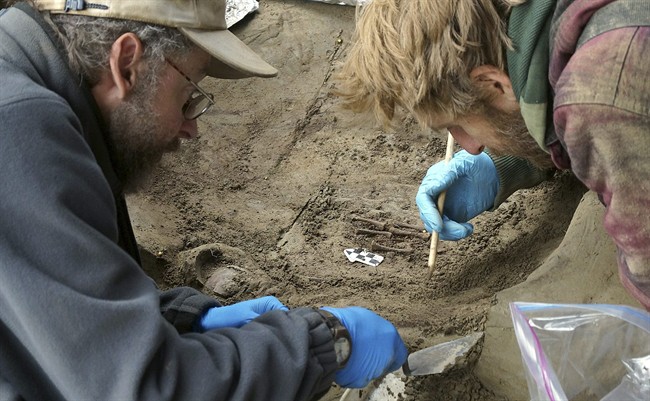FAIRBANKS, Alaska – Researchers have uncovered the remains of two Ice Age infants in Alaska’s interior, a discovery archaeologists call the youngest human remains of that era found in northern North America.

The Fairbanks Daily News-Miner reports the remains dating back about 11,500 years offer a new glimpse into ancient burial practices.
Researchers have explored a large sand dune for nearly a decade at a dig site known as the Upward Sun River southeast of Fairbanks.
In 2010, archaeologists found the partly cremated remains of a 3-year-old child. The remains of the infants were discovered last year about 15 inches below in the same area.
The newspaper reports that University of Alaska Fairbanks researcher Ben Potter details the 2013 discovery in a new report published in the Proceedings of the National Academy of Sciences.



Comments